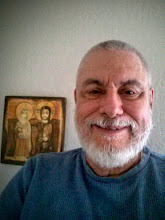In Christianity we have had several "covenant" understandings that we should examine and see how often the fruit of those understandings have been destructive. Two ancient Judeo-Christian mythic stories come to mind for me. The first version of the creation story (yes, there are two versions) in Genesis tells of the "days" of creation culminating in the creation of humanity on the sixth day with this warrant:
God blessed them, and God said to [human beings], "Be fruitful and multiply, and fill the earth and subdue it; and have dominion over the fish of the sea and over the birds of the air and over every living thing that moves upon the earth." (Genesis 1:28)
The theological warrant for domination of the earth is drawn from that story. The second version of the creation story in Genesis 2 is slightly different in that God places the human in a garden (of Eden) and the human's purpose there is "to till it and keep it" (Genesis 2:15). Husbandry is the purpose of humanity in that story rather than domination. In the first version humans are clearly at the top of an order of domination. Humans are more removed from the rest of creation and are given authority to subdue and dominate it. In the second version humans are closer to creation. Humans have a job tending the garden. They are still somewhat removed because they can name things (and therefore exert some control) and eat from everything but the forbidden fruit but the relationship is closer to being a steward of God's creation.
In a later mythic story a "covenant" is established between God and Noah after the great flood that destroys all living things except that which was saved on the ark. In Genesis 8 and 9 that covenant includes: God never again cursing the ground because of humans and never again destroying every living thing (8:21-22); and giving over every living thing to human control (9:1-3). The primary theological warrant that humans are removed from the rest of creation and given dominance by God over creation still seems to be in place. An anthropocentric hierarchy over creation gets firmly established.
This has largely been unquestioned (at least within Christian thought) until we began awakening to the ecological crisis we have been causing with this deadly sense of privileged domination. Native Americans with traditional spiritual understandings see things quite differently. Humans are a part of a whole community of creation, sharing a kinship with other beings. There is no radical separation from the rest of creation.
Eco-spirituality in Christian theology looks at the domination motif as something we need to repent from. Separating humanity from the rest of creation violates the relational basis in life--we are actually a web of interdependent, mutual relationships which we should tend and provide care for mutual benefit. All creation is a part of a sacred body--there is no separation or hierarchy between the material and spiritual. God, though not fully contained in creation, is not radically separate from the cosmos. And we are accountable for our relationship with the earth to Christ.
So as we look to Thanksgiving Day and other times of gratitude for what the earth so generously provides for us to sustain our lives, this would be a good time to make a new covenant--a new sacred promised relationship of mutuality with this good earth and with the God that so delights in all creation. We have much to do to repent from our exploitative ways and repair our relationship with this earth that is our home. Let this 21st century be the time of a major new Earth Covenant that embraces the wisdom of many faith traditions in the shared commitment to reformed practices, a renewed relationship of respect with the earth, and a boldness to challenge narrow economic, political, social, and personal privileged self-interests.
***
Here’s a little postscript. After writing this meditation I took a walk by San Pablo Bay and it came to me that students of Celtic influences on Christian spirituality may take issue with my rather blanket indictment based on the later tradition’s relationship with nature. There are some medieval sources that see nature as graced and we benefit from this branch of a more “earthy” spiritual tradition in Christianity.

